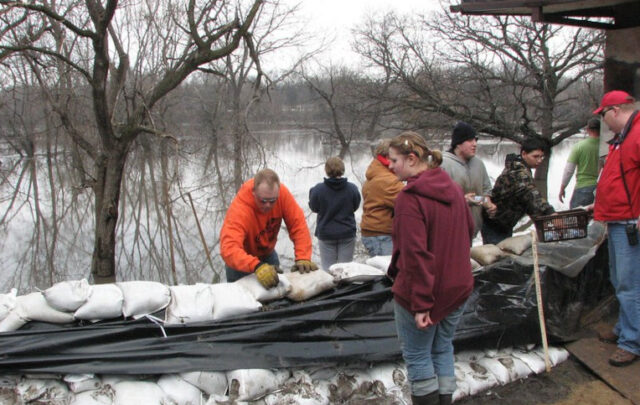Click on the headline (link) for the full text.
Many more articles are available through the Energy Bulletin homepage
The Great Splintering
Umair Haque, Harvard Business Review blog
I grew up a global orphan, and I call London my home today. The simple reason I chose to live there was this: first and foremost, I’d never met a city that let a mutt like me be myself. And yet, over the last several years or so, gradually, almost imperceptibly at first, the tenor of my city has changed. The convulsions of violence that have wracked London and other British cities seem to have exploded overnight, but I’d bet those of us living here know: that fuse has been long burning.
Wracked from end to end by riots and looting, the country is now starting to admit the existence of the hidden faultlines that lie quivering beneath the humdrum everyday blandishments of society as we live it.
Underneath the surface chatter about police brutality and parental responsibility is a deeper fear, and a not unfounded one: that a social contract’s been torn up. If you accept the possibility that there are many kinds of violence — not merely physical, but emotional, economic, financial, and social, to name just a few, then perhaps the social contract being offered by today’s polities goes something like this: “Some kinds of violence are more punishable than others. Blow up the financial system? Here’s a state-subsidized bonus. Steal a video game? You’re toast.” (To be painfully clear, I don’t think any form of violence is justifiable, excusable, or acceptable.)
There are many kinds of looting…
London’s become a city where many young people feel they’re finished before they start…
I call it a Great Splintering — not purely an economic phenomenon, as in “Great Contraction,” but a social one…
(10 Aug 2011)
Suggested by EB reader Jim Barton
Anna Hazare’s fight for change has inspired millions of Indians
Chetan Bhagat, the guardian
At the time I write this, millions of my countrymen are on the streets, fighting for a strong anti-corruption law. Many more are glued to their TV sets, watching developments as the initially defiant Indian government looks on track to eat humble pie.
This fight is led by Anna Hazare, a 74-year-old activist, who is on hunger strike until parliament considers the bill that would establish a Lokpal – ombudsman – with the power to investigate and punish corrupt politicians and civil servants.
Hazare had fasted in April and forced the government to agree to include his team in drafting the bill. His non-violent yet aggressive, Gandhi-like method of protest, together with his anti-corruption cause, struck a chord with Indians. Thousands of non-government organisations fight for social causes every day in India, but none has ever achieved this kind of support. From rickshaw drivers to software engineers, from businessmen to spiritual leaders, people from all walks of life back Anna. So do I.
This level of support is unusual here. The usual Indian response is phrases all of India’s young are used to hearing from the older generation: “Nothing will ever change in this country”, “nobody can touch the powerful”, and “the common man is meant to suffer”.
Cynics thrive in India, and they have ample evidence to support their attitude. After all, things have not changed much over the past five decades – governance is as incompetent and corrupt as ever, and the guilty are almost never punished…
(21 Aug 2011)
Blood on the Iraqi-Syrian tracks
Pepe Escobar, Asia Times Online
It was a bloody Monday all across Iraq; two suicide bombers, 11 car bombs, and 19 VBIEDs (Pentagon speak for “vehicle-borne improvised explosive devices”) – with nearly 70 people dead and over 300 wounded.
Car bombs in Najaf, another one inside Kut’s main market, a bomb set off near the convoy of the mayor of Baquba, two suicide bombers attacking an Iraqi counter-terrorism unit in Tikrit, a bomb exploding near a government convoy in the Mansur neighborhood in Baghdad – the fact that bloody Monday happened less than two weeks after the Nuri al-Maliki government announced negotiations were on for Washington to keep at least some of the current 48,000 US troops in Iraq after the end of 2011 deadline for
American withdrawal raises the inevitable question: who profits from it?
Al-Qaeda in Iraq might profit if its strategy is to keep the US enmeshed in the Iraqi quagmire – as the key accusation already flying across the Potomac concerns the “capability” of the Iraqi security forces, with the “overwhelmed by insurgents” scenario monopolizing the narrative. United States neo-conservatives, armchair hawks, most inside the Pentagon and virtually all Republicans also profit – for the same reasons.
Al-Qaeda in Iraq spokesman Mohamed al-Adnani may have lent credence to this hypothesis, alerting last week in an Islamist website, “Do not worry, the days of Zarqawi are going to return soon.”
…Maliki – who is personally in charge of the Defense Ministry and the security apparatus – is close to Tehran. But he is above all an Iraqi nationalist. His position is much more nuanced – calling for reforms but at the same time warning that the Assad government must not be destabilized, with the country plunging into chaos.
Yet the Assad regime’s bloodlust could be mistaken for a pathological case. Prime Minister Recep Tayyip Erdogan in Turkey is no Maliki – and he’s about to run out of patience. Apparently the Assad regime had bought some time after Turkey’s Foreign Minister Ahmet Davutoglu’s visit to Damascus last week (see Why the regime won’t fall Asia Times Online, August 13, 2011).
But after regime forces intensified the siege of Latakia over the weekend, Davutoglu may have had enough. Ominously, this Monday, he announced, “This is our final word to the Syrian authorities: Our first expectation is that these operations stop immediately and unconditionally. If the operations do not end, there would be nothing more to discuss about steps that would be taken.”
What’s next? Turkey invades Syria with help from the North Atlantic Treaty Organization?…
(21 Aug 2011)





